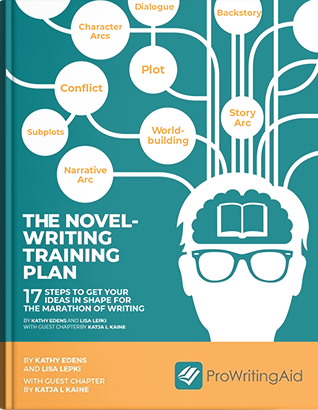
When I discovered ghostwriting a few years ago, I was ecstatic. At the time, my copywriting career was on a serious downswing, and my efforts to supplement my income with my basement wood shop were not panning out very well.
Through a series of connections, I found a world where I would be getting paid as much as $0.05/word to write fiction for other people. In my mind, it was a gold mine!
I'm a fast typist. I have been for years. That happens when you do nothing but type all day for more than a decade. You get good at it.
In response to this opportunity, I did some calculations. First, I took a speed test to see how many words I can type per minute.
If I'm operating at full speed, I can type 72 words per minute. For an hour, that comes out at 4,320 words. Rounding down to account for a little bit of slowdown, I could estimate 4,000 words per hour, and at $0.05/word, that comes out at $200/hour!
I could write for two hours per day and make $350-$400 per day! And then I'd have the rest of the day to work on whatever else I want! My money problems are solved!
Yeah... no.
It might shock you to learn that this is not how any of this went down. In the 18 months that I was a ghostwriter, I probably nailed that 4,000 words per hour speed, like, twice.
Sometimes the words flow effortlessly. Other times, it's like trying to pick up a wet watermelon off the floor: you feel like you have it for a moment or two, but you're generally struggling, sweating, and probably making a mess out of things.
Writer's block is real. Sorry, professional writers who do interviews. It is. It happens to everybody. But often, that's because we're waiting around for the Muse to hit us. When we're inspired, we can write for days on end. When we're not inspired, we're lucky to get a sentence or two out that makes sense and is usable.
How do you force the inspiration? Are there ways to keep the Muse by your side? Absolutely.
First, understand where the resistance is coming from
This is your #1 goal, and if you can only do this, you're probably farther ahead of the game than most.
Steven Pressfield calls the urge to avoid your job resistance. It's a great way of putting it because it means that you have a tangible goal in front of you and it can be reached.
Resistance is not a complete block. It's just something that's preventing you from where you want to go.
It can be a lot of different things. It could be fear of failure, or fear of success. It might be high standards and expectations that you are setting for yourself. It might just be a lack of clarity on what you're intending to write about.
Usually, though, the culprit is perfectionism. We all want to sit down, put our fingers on the keyboard, and bang out brilliant, award-winning, life-changing prose.
That almost never happens. To anyone.
So how can you overcome perfectionism and get the writing done?
You need to build habits
Trying to just sit down and write a bunch of good words is near-impossible if you focus on it just one time. Instead, your focus should be on building habits that support your writing, and doing this over time.
Good habits don't happen overnight. Just like eating right and exercising, building a writing habit is a lifestyle change.
Resistance is something that wears down the more you attack it. If you can build good habits that put you in position to get words on the page regularly, you'll start to feel that resistance loosen.
Easier said than done, though, right?
But there's a secret to making it easier on you: change your environment.
In his book Willpower Doesn't Work, Benjamin Hardy quotes business educator and coach Dr. Marshall Goldsmith, who says, "If we do not create and control our environment, our environment creates and controls us."
Are you taking control of your environment? Or is the laundry piling up? Are there papers stacked on your desk? Is there clutter where there shouldn't be? Are you trying to write near a TV that's on?
Once you take control of your surroundings, you can build habits more successfully – and plow through that resistance.

Ways to change your writing environment for the better
- Clear your workspace. The best thing you can do. Scan papers and shred them. Put away stuff you're not using. Be an adult and grab a dust rag. It won't take long. Just tidy up so that your work area is as ideal as possible.
- Set up blocks on your computer. I use Freedom to schedule out blocks of time where I need to focus: no social media, no Feedly, no news, no YouTube. I keep the basics of the internet open in case I need to Google something, but every rabbit hole is plugged so that I'm not tempted to be distracted.
- Maybe change your workspace entirely. This is an option for some and not others, but if you can get away somewhere just to change your surroundings, you can actually see a lot of improvement in your writing productivity. Once a week, I like to go somewhere else to work instead of my home office. It doesn't have to be anywhere fancy: a bookstore. A library. A coffee shop. Just somewhere that I can be among the living and freshen up my view.
- Headphones. A must if you have children. A decent set of headphones is indispensable. Just the act of putting them on and playing some music can be enough for some to start cranking out words. There are plenty of focus music playlists on any music service. Don't overthink the headphones, either. Some swear by their $300 brand name, noise-canceling headphones. I use a cheap pair of wireless earbuds I bought on sale for like $40 about a year ago. I just turn up the volume if I need to. Would I like expensive headphones? Sure. But I work with what I have for now.
Now that your environment is on point, let's talk about the writing itself...
How to approach writing to command the Muse
The Muse shows up on demand – but you have to tell it to get here.
How? Not by chanting or meditating. The Muse only comes when you're writing. But the problem is, you don't want to start writing because the Muse isn't there yet.
It's the Catch-22 we all face: can't write because there's no Muse, but there's no Muse because you're not writing.
Here's what I do:
- Accept that the first 500 words will suck. This is so crucial. When I write, it takes a little bit for me to get going. Maybe I can write 4,000 words per hour, but that first 500 words could take me 45 minutes on their own, and they won't feel good to write. I always remind myself that this is okay. I'm just stretching my muscles and warming up. Let them suck.
- Set a timer, maybe. If you really can't get going, consider setting a timer for 10-15 minutes and then keep the fingers moving. It's the act of writing that you need to be working on. Good writing comes later.
- No editing first drafts. You're not here to make it great yet. That comes in editing. Once you start editing as you go, you're inviting perfectionism to take over. And on that same note...
- Accept mistakes, errors, and unclear points. Can't think of a word or name? Put "XXXX" in the spot where you need it and get to it later, when you're editing. Want to say she was "fit as a fiddle" but not so cliché or hokey? Write "fit as a fiddle" anyway. That's what you mean. You can improve on it later. Keep the momentum going.
If you focus on changing your environment and making writing as easy as possible for you, your word counts will skyrocket. Maybe you won't hit 4,000 words per hour, but you can make significant progress on your writing goals if you put the right system in place.


